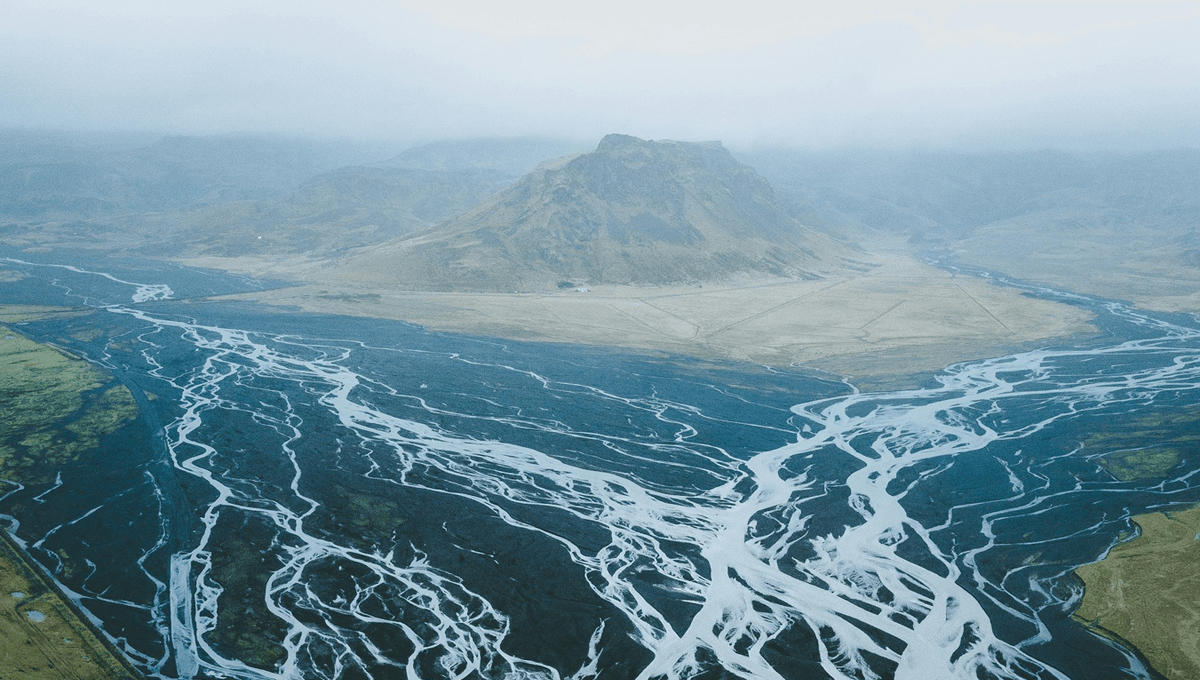
The majority of rivers start in lofty mountains before flowing down their slopes and ending up in the sea. While that simplistic story explains the route of most rivers, many others have more eccentric and elusive origin stories.
The starting point of a river is referred to as the river source and headwater. Along with mountains, other common river sources include melting glaciers, lakes, bogs, marshlands, and groundwater springs.
Mountains often serve as a river source because they can help generate clouds and, in turn, produce precipitation like rain or snow, which leads to gushing rivers.
As wind blows against the mountains, it’s forced to rise upwards where it is condensed into clouds. Eventually, the clouds that lurk atop the mountain will drop their load in the form of rain or snow, which eventually trickles down in the form of rivers. Since most of Earth’s land is higher than sea level, it makes sense that gravity will often lead rivers to the edge of land into the wider ocean.
However, mountain-top rain and snow aren’t always the starting point. The headwater of the Indus, Ganges, and Brahmaputra rivers in Asia, for instance, all owe their flow to melting glaciers in the Himalayas, Karakorum, and Hindu Kush mountains.
Sometimes, mountains aren’t involved at all. One example is the River Thames, the murky vein of water that famously flows through London before emptying into the North Sea.
Its flow starts in Gloucestershire from deep underground springs originating in the Cotswolds’ limestone aquifers. Where exactly, though, is still hotly debated. Thames Head near the village of Coates is commonly cited as its source, but many believe it should be attributed to Seven Springs, just south of Cheltenham, as it contributes waters to the Thames but slightly further away from its mouth.
Indeed, it isn’t always possible to pinpoint a single coordinate on a map and say “This is where river X starts.” Rivers often have many trickles and tributaries that feed into one another and culminate in a single river. Although the river source is generally attributed to the farthest point from the river’s mouth, it can be tricky to determine.
The source of the River Nile has been a longstanding mystery, despite its prestige as the longest river on the planet – well, maybe the longest river (more on that later). Lake Victoria, Africa’s largest lake by area, is often credited as the source of the Nile. However, this great lake is fed by other rivers, namely the Kagera River, which stems from the Ruwenzori Mountains. All in all, it’s a lot more complex than it first appears.
Likewise, the Amazon River’s source has proved equally evasive over the centuries. While it’s evident it originates somewhere in the Peruvian Andes, it’s harder to tell where exactly.
In 2007, Brazilian scientists embarked on a 14-day expedition to find the river’s source. Their trip up-ended previous theories by suggesting the Amazon’s flow originated amidst a river in the south of Peru, as opposed to the north of the country. If their findings were accurate, it would extend Amazon’s length by about 284 kilometers (176 miles), making it longer than the Nile.
So, which is longer: the Amazon or the Nile? It ultimately depends on where you consider its source – and that’s not easy to ascertain. In April 2024, another team of scientists is heading back to the Peruvian Andes, hoping to solve the mystery once and for all.
Source Link: People Are Asking: Where Do Rivers Come From?